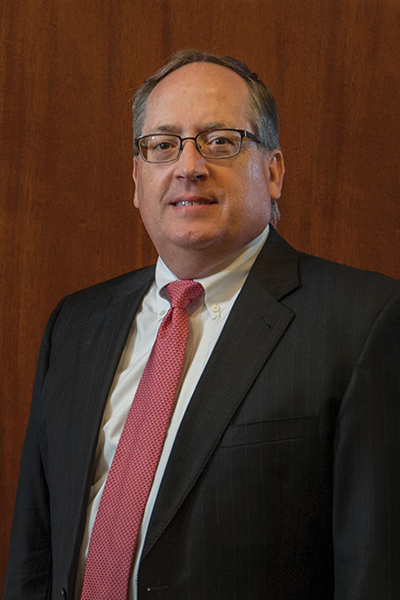Alternative Dispute Resolution
 Francis H. “Chip” Casola
Francis H. “Chip” Casola
Woods Rogers PLC
Roanoke
Title: Principal
Other legal specialties: General civil litigation, commercial litigation, plaintiff’s personal injury
Birthplace: Somerville, N.J.
Education: Bachelor’s degree with honors (Phi Beta Kappa), Virginia Tech; law degree, University of Virginia School of Law
Spouse: Diane – a lawyer for 19 years, now chair of a high school English department
Children: Grace, 23
Hobbies: Most recently, log cabin restoration
First job as a lawyer: Attorney at Woods Rogers — 30 years ago
Fan of: College football, especially the Virginia Tech Hokies
Favorite vacation spot: Outer Banks, N.C.
Recently read book: “A Short History of Nearly Everything” by Bill Bryson
Career mentor: The late William B. Poff. I learned under and was mentored by the best. My partner Frank Friedman has been a great sounding board over the years as well.
How did you become involved in Alternative Dispute Resolution?
Like many litigators, I encountered mediations and arbitrations early in my career. After the Professional Rules of Conduct first required attorneys to advise their clients of the availability of ADR, it became more prevalent. Business lawyers also have written arbitration clauses into commercial contracts more routinely. These developments “trickled down” to my practice, where I have seen more and more mediations and arbitrations, including sophisticated international arbitrations.
In what types of cases or situations does ADR work best?
Mediations work best when both parties are motivated to get a case resolved, the facts have been fully developed, and both sides appreciate the legal issues in the case. If the attorneys cannot even agree on the legal issues, the mediation is most likely doomed to failure. Arbitration is different because it typically arises under a pre-existing contract that sets out parameters for an arbitration process with binding results and very limited rights of appeal.



 Francis H. “Chip” Casola
Francis H. “Chip” Casola














